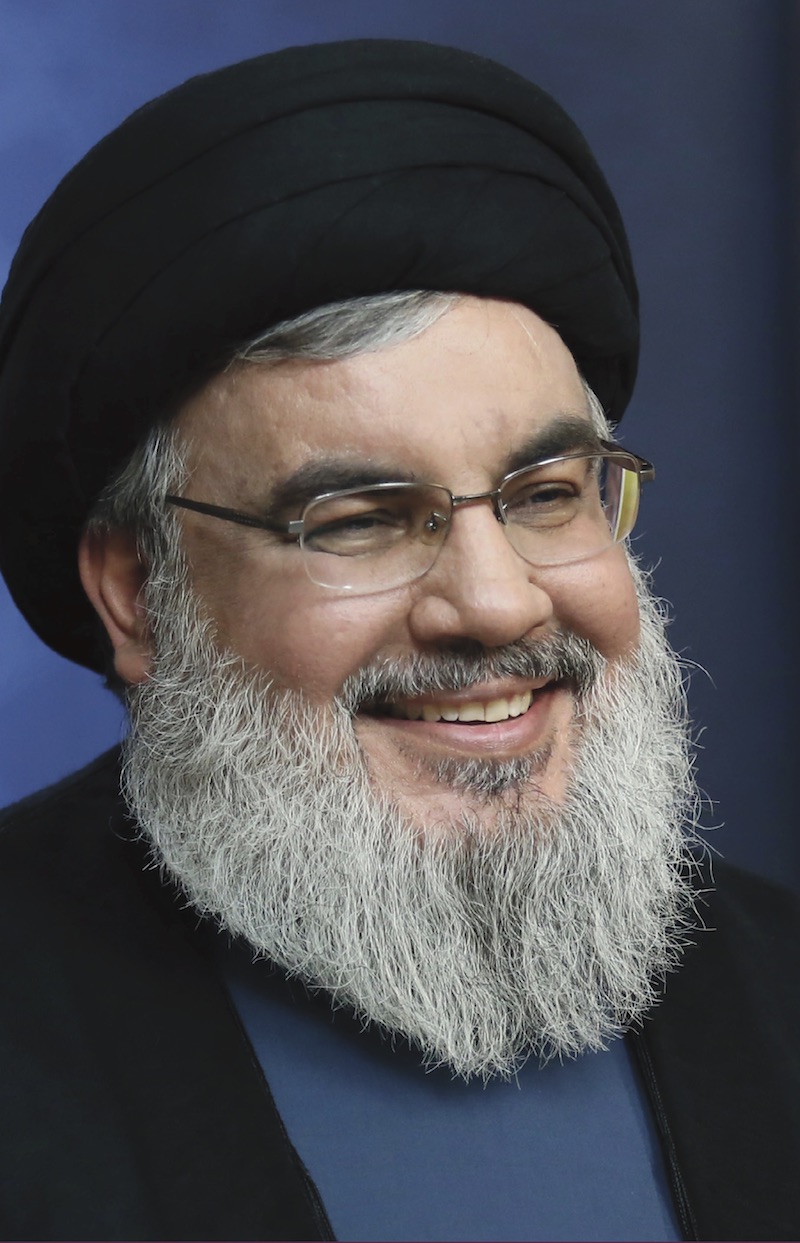Seyyed Hassan Nasrallah was one of the founding members of Hezbollah and was elected as its third Secretary-General in 1992, a position he served in for 32 years.
Nasrallah was born in Beirut and studied in seminaries in Baalbek and Najaf, Iraq, where he studied under Ayatollah Mohammad Baqir al-Sadr. Nasrallah briefly joined the Amal Movement, a Lebanese Shia political group, before becoming a member of Hezbollah in 1982 following the Israeli invasion of Lebanon. He became the leader of Hezbollah in 1992 after the assassination of his predecessor, Abbas al-Musawi, by an Israeli airstrike.
Hezbollah emerged to fight Israel during its second invasion of Lebanon, in 1982 when Nasrallah was just 22. He was a charismatic leader and orator and had a loyal support base among Shia Muslims in Lebanon and beyond. At the height of his popularity shops sold DVDs of his speeches, some parts of which people used as their ringtones. Due to security concerns, since 2006 he rarely appeared in public and was mostly seen through his fiery televised speeches that were broadcast from a secret location and were widely anticipated events
Nasrallah led Hezbollah in its war against Israel which occupied Southern Lebanon and eventually forced them to withdraw in May 2000, ending an 18 year occupation. He was hailed as a hero throughout the Muslim and Arab worlds. In 2006 he fought a 34 day war with Israel to a stalemate which saw Nasrallah enjoy the height of his popularity in the Arab and Muslim worlds as the head of the only force that had stood up to Israeli aggression.
The Maghen Abraham Synagogue, one of the main synagogues in Lebanon, was damaged by Israeli bombardment during the war. Nasrallah welcomed its renovation, saying “This is a religious place of worship and its restoration is welcome.” A Hezbollah spokesman said that they “respect the Jewish religion just like we do Christianity. The Jews have always lived among us. We have an issue with Israel’s occupation of land.”
Nasrallah transformed Hezbollah from a guerrilla group formed in the Lebanese civil war into a political and military force, stronger than the Lebanese state in whose government it served as a political party. Hezbollah cultivated a social welfare system that provides schools, clinics and housing in the predominantly Shia parts of Lebanon. It also runs Al Manar—an influential television station. Hezbollah fighters supported the Syrian regime during the Syrian civil war, and although their presence there helped push out DA’ISH, this led to him losing some popularity.
In 2023, Hezbollah opened a front against Israel to help lessen the intensity of the Israeli war on Gaza. Key Hezbollah leaders were assassinated and the group suffered many losses, including the massive attack of exploding pagers and walkie-talkies that left 32 dead and thousands injured throughout Lebanon. But Nasrallah remained defiant till the end. On Friday 27th September, 2024, Israel dropped 85 tonnes of Bunker-Buster bombs—which are illegal to use in densely populated areas according to the Geneva Convention—on the Southern Dahiyeh area of Beirut where Nasrallah was meeting with Hezbollah members. Nasrallah’s assassination by Israel marked a dangerous inflection point in regional dynamics and seriously increased the threat of a regional war.
Nasrallah’s legacy extends far beyond seeking justice for the Palestinians and other issues in the Middle East. His influence resonates with those who challenge imperialist narratives and fight against colonial legacies. His staunch anti-imperialist stance has garnered recognition on the global stage, particularly through his meetings with influential figures such as Noam Chomsky and Julian Assange. These interactions underscore his alignment with broader movements that advocate for the rights of marginalized and oppressed peoples. Nasrallah embodied a significant voice in the collective struggle against exploitation and oppression, championing the human right of all peoples to live free and dignified lives.



